Doctor of Medicine Researches the Potential of Stem Cells in Treating Urethral Strictures
Doctor of Medicine Researches the Potential of Stem Cells in Treating Urethral Strictures
Located in the graduate courtroom lt. III, Denpasar Postgraduate Building, the Doctoral Promotion exam has taken place with the promovendus candidate, dr. Ida Bagus Putra Pramana, Sp.U., with the dissertation title "The Influence of Adipose Derived Stem Cells with Hypoxia and Normoxia Cultures on IL-10, TNF-α, FGF-2 Levels, Myofibroblast Expression and Formation of Fibrous Tissue in Rat Urethral Reconstruction." (23/5/2023)
Urethral stricture, namely fibrosis or spongiofibrosis of the urethral lumen, which can cause further complications in the urinary tract and reduce the patient's quality of life. Reconstructive surgery is an option but has a recurrence rate of 10-20%, causing high costs in treatment. Stem Cell is a therapeutic option that can be combined with reconstructive surgery. Masenchymal stem cells derived from adipose have the ability to prevent the formation of fibrous tissue, besides that they are superficial so that harvesting is easy.
The environment in culturing stem cells is one of the important things in increasing the viability, proliferation ability of stem cells where one thing that can be done is through hypoxic culture. Hypoxic cultures are said to increase post-transplantation stem cell proliferation and viability when compared to normoxia cultures.
One of the mechanisms in the wound healing process to reduce the formation of fibrosis is through a decrease in the levels of pro-inflammatory cytokines and an increase in anti-inflammatory cytokines. FGF-2) needs to be explained further.
This research is an experimental study on animals with a randomized post test only control group design. The conclusion of this study administration of ADSC 2 x 105 with hypoxic culture can increase anti-inflammatory and anti-fibrosis growth factors such as IL-10 and FGF 2 and reduce pro-inflammatory cytokines such as TNF-α. Giving ADSC with hypoxic culture can also reduce the formation of myofibroblasts on day 14 and also tissue fibrosis on day 14.
The novelty of this study is that hypoxic pre-conditions have better results in preventing the formation of fibrous tissue in the urethral tissue compared to ADSC conditions with normoxic and hypoxic pre-conditions, this can occur due to an increase in IL-10 and FGF-2 as well as a decrease in TNF-α, which in turn will reduce the expression of myofibroblasts and reduce the formation of fibrous tissue.
The exam was led by the Dean of FK Unud, Dr. dr. Komang Januartha Putra Pinatih, M.Kes., with the testing team:
1. Dr. dr. I Gde Raka Widiana, Sp.PD-KGH (K) (Promoter)
2.Dr. dr. Gede Wirya Kusuma Duarsa, MARS, M.Kes, Sp.U, Subsp.Ped (Co-promoter I)
3. Dr. dr. Tjokorda Gde Bagus Mahadewa, M.Kes., Sp.BS (K) Spinal, FICS., FINSS (Co-promoter II)
4. Dr. dr. Soetojo, Sp.U(K)
5. Prof. Dr. dr. I Made Jawi, M. Kes
6. Dr. Ir. Ida Bagus Putra Manuaba, M. Phil
7. drh. I Nyoman Mantik Astawa, Ph.D
8. Dr. drh. I Gusti Ngurah Kade Mahardika
9. Prof. Dr. dr. I Ketut Suyasa, Sp.B.,Sp.OT(K)
10.Prof. Dr. dr. Ni Nyoman Sri Budayanti, Sp.MK (K)
While academic invitations are:
1.Dr. drh. Hamong Suharsono, M. Kes
2.Dr. dr. I Made Mulyawan, Sp.B.Subsp.BD(K)
3.Dr. dr. Ketut Kwartantaya Winaya, Sp.KK(K)., FINSD., FAADV
4.Dr. dr. I Wayan Niryana, M.Kes., Sp.BS(K)
5.Dr. dr. I Gusti Ngurah Wien Aryana,Sp.OT (K)
In this exam, Dr. dr. Ida Bagus Putra Pramana, Sp.U., was declared a graduate as the 380th Doctor Graduate of the Doctoral Degree in Medical Sciences, Faculty of Medicine, University of Udayana with the Cum Laude predicate.
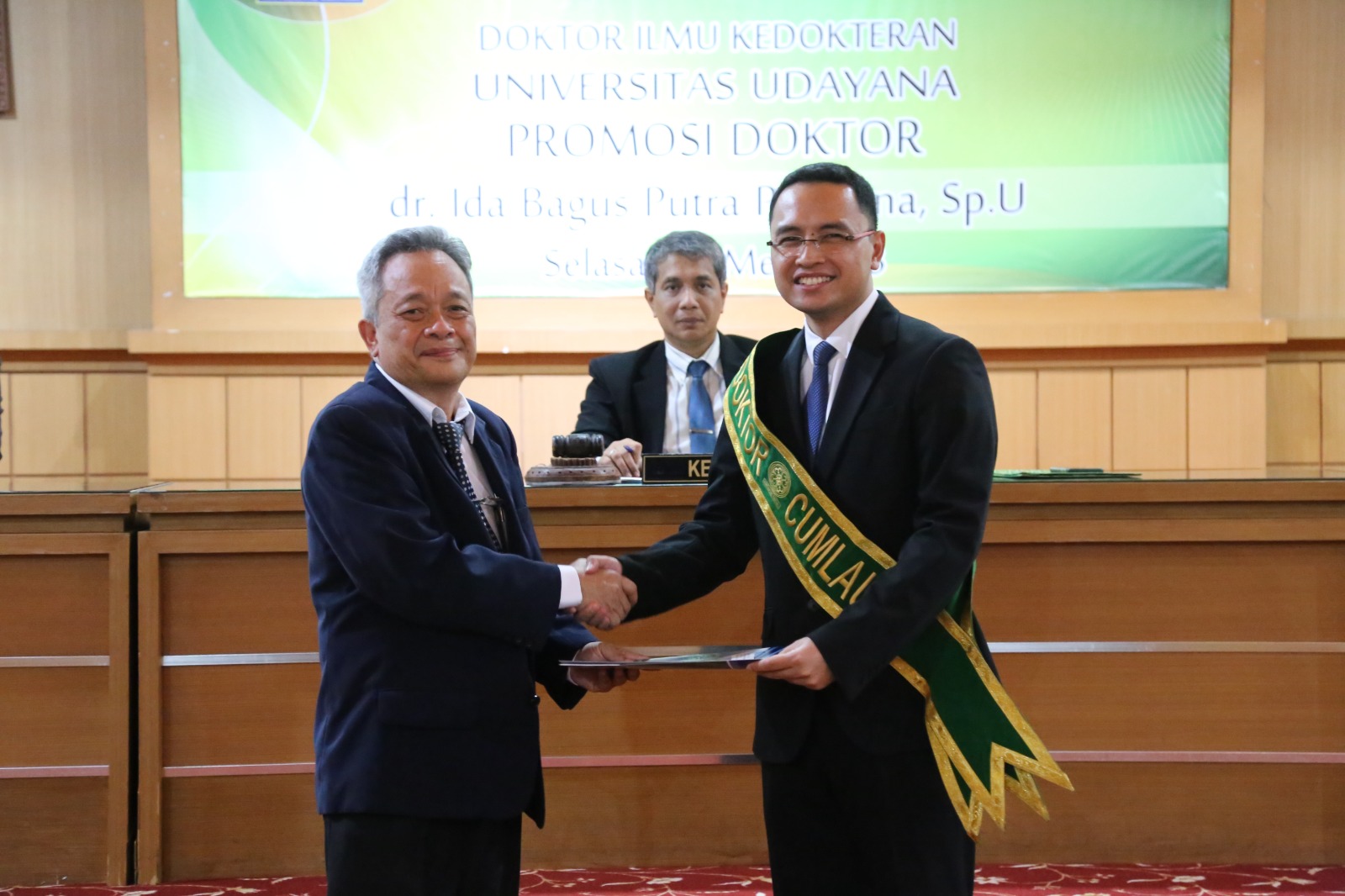

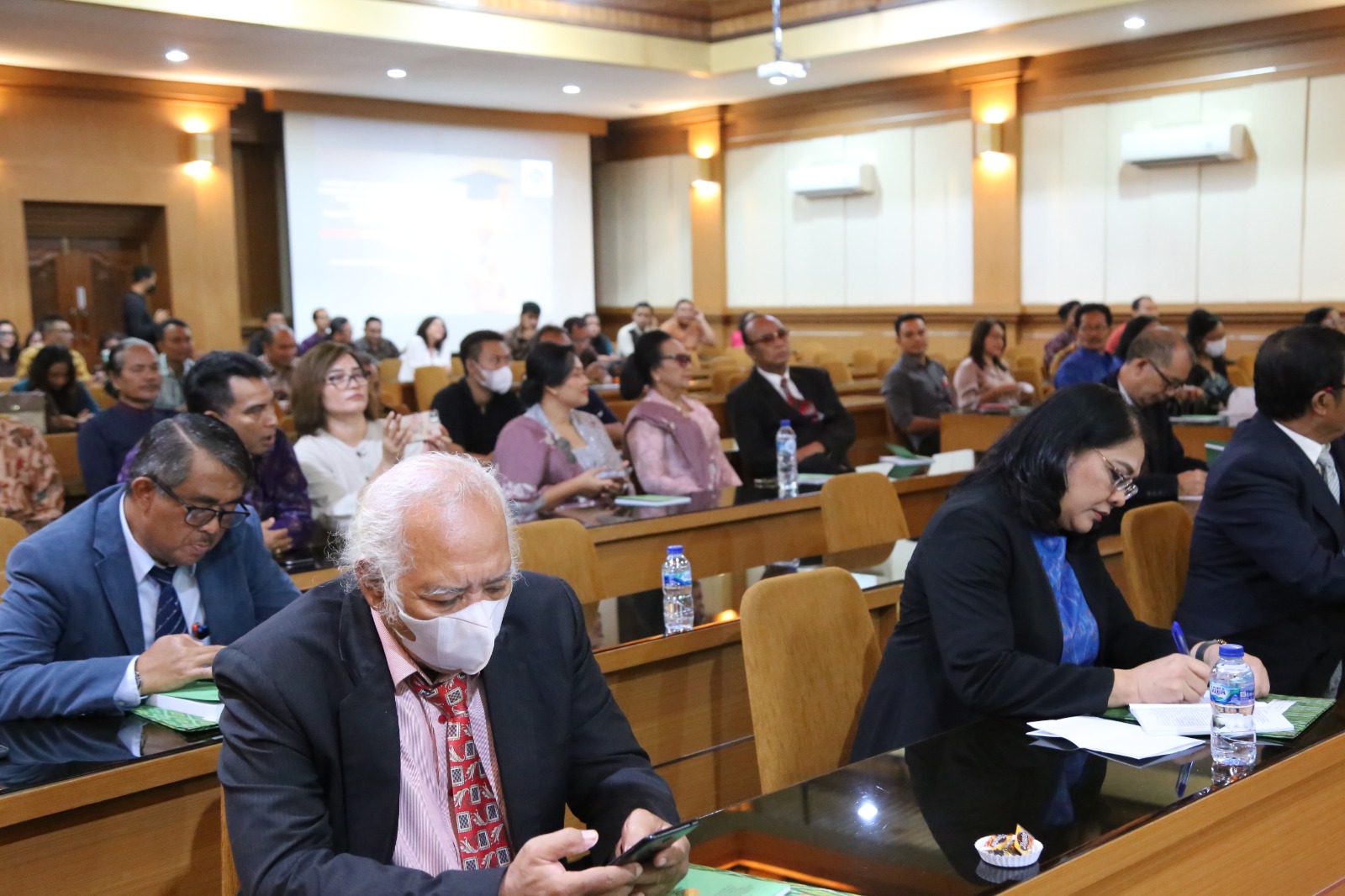
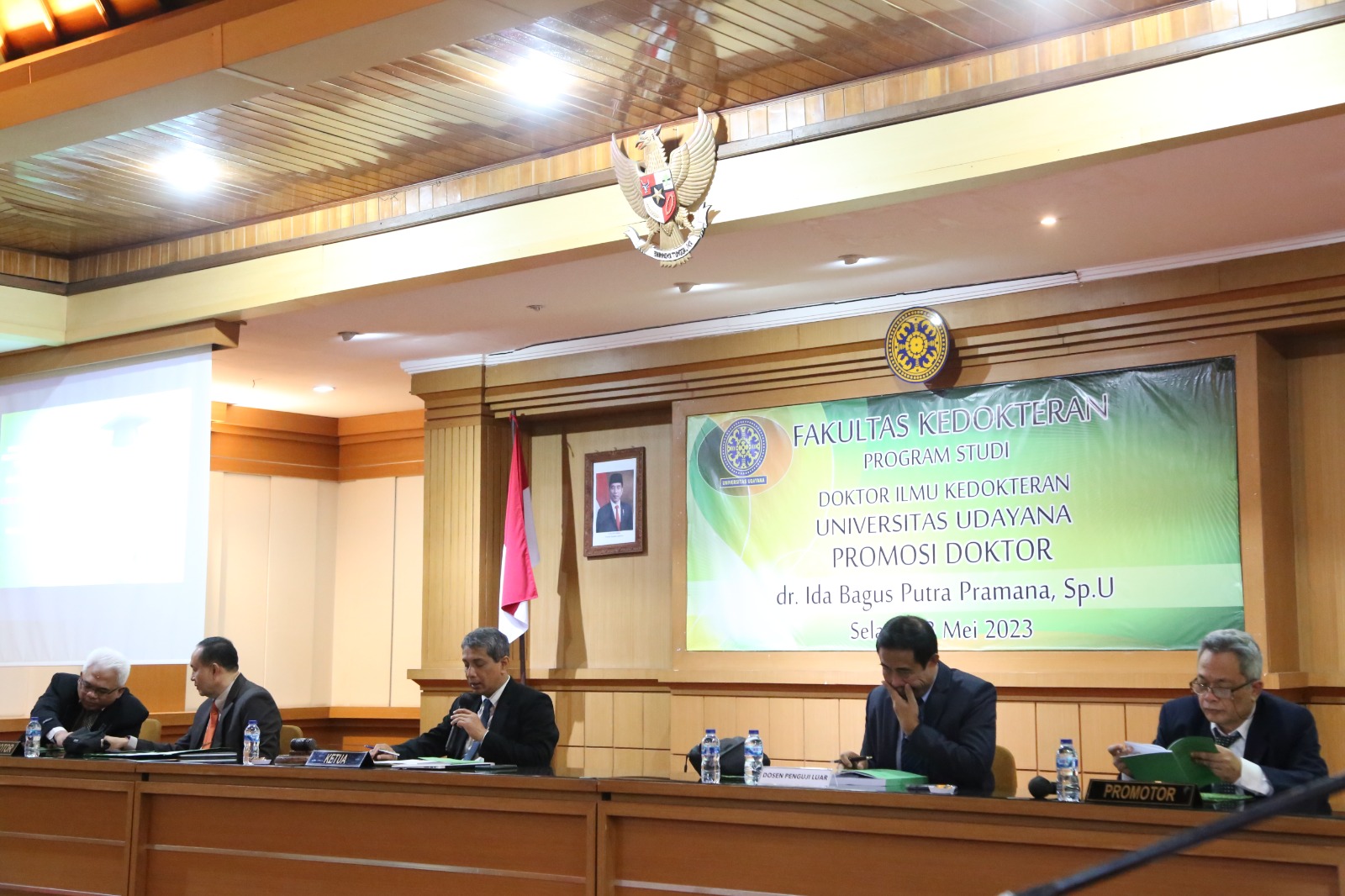

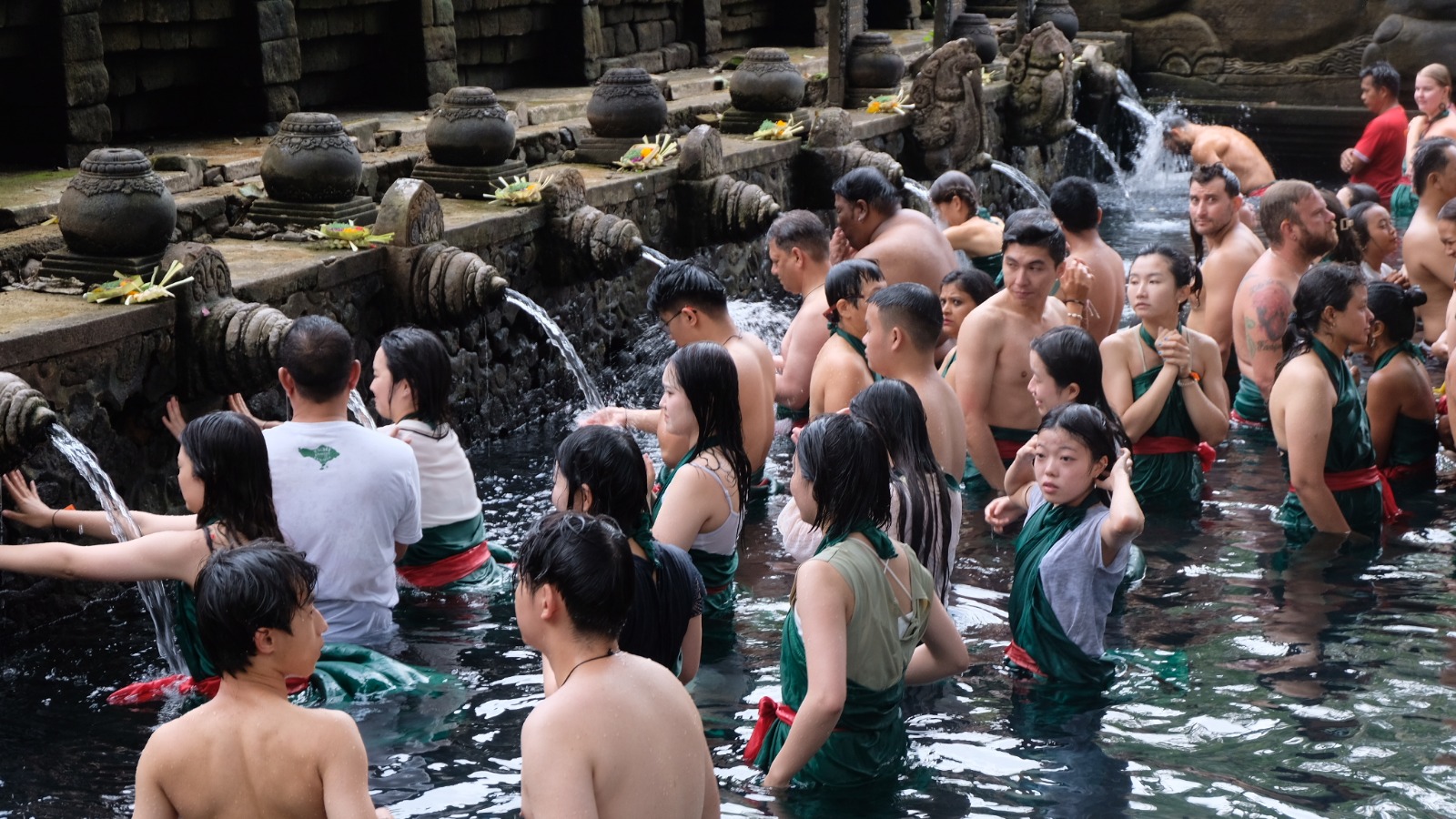

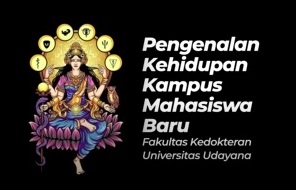
UDAYANA UNIVERSITY